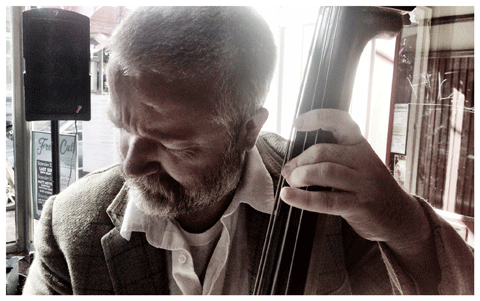 LESSONS LEARNED Chad Walls tells a story in 10 sharp, three-minute chapters |
Chad Walls is a guy who’s still dedicated to the album format. Like Zach Jones did with his Days, Walls wants to tell you a story. And he’s decided to use a group of songs as his vehicle to do so.
As a narrative format, of course, the album lags behind the novel and the film, and it requires a bit more attention than either. Words are sort of important to stories, especially when you don’t have pictures, and the words of songs are meted out in phrases and abstracts, sometimes with vocal delivery that renders them hard to make out. What is like a little movie to a songwriter might impart more of a general emotional impression to you. Like watching a movie on the bus to Boston while you’re listening to your own music and with the screen three seats up.
You get the general idea.
With Euston, Walls is writing and performing as the project An Overnight Low, with help from a gigging band for live shows and contributions from local session players gathered by Jonathan Wyman on the album. Euston is just the first installment of a three-part project he’s got all mapped out (much of it is already completed), documenting bits and pieces of his stay in Manchester, England, where he lived for three years while getting a doctorate.
The ensuing work isn’t quite as cerebral as all that sounds, though. Walls is a pop-music guy and has been since he was writing songs with the boys in the Frotus Caper back in 2001. Thus, he tells his stories in sharp, three-minute chapters. The 10 songs on this first record are all done in less than 30 minutes.
He’s not nearly as manic and upbeat as the Frotus often found themselves, though. With an acoustic guitar strum as foundation, these songs are mostly more subdued. There is an alt-country weariness to much of it, fueled by the kind of nostalgia that can be induced by sifting through the detritus of three years abroad.
This is encapsulated most succinctly in “Terminal B,” a two-minute, transitional tune that’s just Walls, an acoustic guitar, and sparingly administered feedback. Like “Skyway” on the Replacements Pleased to Meet Me, your attention is drawn by sparseness as Walls contemplates “songs on the backs of tickets” and the meaningless phrases of traveling: “Enjoy your stay, or welcome back.”
It’s the same kind of emotional impact as delivered by the album’s true standout, “London,” a tale of fleeting friendship and lives unraveling. The vocals are some of the highest on the album, making everything feel insistent and important, and Holly Nunan’s backing vocals weave behind the chorus — “least I remember it that way” — to emphasize the vapidity of the interaction at hand.
She’s heard he’s been to London (no, it was Manchester, thanks), “How have you been? I think I lost your number.” Ouch. Were we close, once? It’s a truly arresting song, calling to mind those friends you were closest to, but don’t really have much in common with anymore.